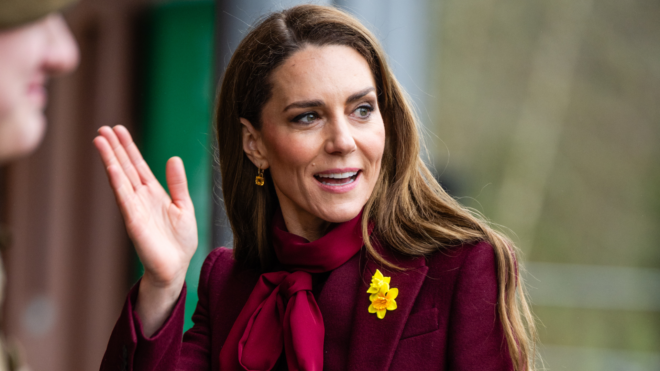
In this article
Postpartum hair loss is one of those things you don't really think much of until you notice the clumps of hair clogging the shower drain or becoming entangled in your hairbrush. This stage begins during the fourth trimester and while it may seem like you're losing massive amounts of hair, postpartum hair loss likely won't cause permanent bald spots or continued hair loss.
So, when exactly does hair loss stop? Usually, it will continue for about a year after you give birth. Read on to learn why postpartum hair loss occurs and how to cope.
Postpartum hair loss: Why is my hair falling out?

Postpartum hair loss is a normal post-pregnancy occurrence, though not a true form of hair loss in the sense that it's not caused by genetics or male or female pattern baldness. Dermatologists refer to it as excessive hair shedding, and it is caused by fluctuating hormones during pregnancy.
It's really the "luck" of the draw when it comes to postpartum hair loss. It doesn't occur in every pregnancy and sometimes a woman may experience it during one pregnancy but not a subsequent one. New moms may be comforted by the fact that postpartum hair loss is not uncommon; according to the American Pregnancy Association, it affects 40% to 50% of all women.
“You are far from alone,” Dr. Dianne Haynes, an ob-gyn at Kings County Hospital in Brooklyn, N.Y., told Mom.com. “This is an issue that causes a lot of anxiety with my patients, but it’s important to know there’s nothing wrong with you, it’s all par for the course.”
“The hair cycle has three stages — there’s a growth stage, a resting stage, and a phase in between the two. When you are not pregnant, about 5 to 10 percent of your hair is in a resting phase. During that phase is when hair falls out and you get new growth," Haynes explained. "However, when you’re pregnant you spend more time in the growth stage and less time in resting, so you’re not losing that much hair. This is why many women report having such full, beautiful hair when they are pregnant.”
Once you deliver your baby, your hormone levels will get back to normal and more of your hair will enter the resting stage, resulting in more hair loss.
Which vitamins for hair loss work best?

Just as there is no way to truly prevent postpartum hair loss, there's also nothing that will magically help hair grow back once it begins shedding. Many new moms, however, look to natural hair loss remedies like vitamins and supplements to help things along.
Remember to consult with your doctor before taking any vitamins or supplements — especially if you're breastfeeding — to make sure they are safe for you and your baby.
New moms may want to consider continuing their prenatal vitamins or investing in a hair, skin, and nail supplement rich in biotin, keratin, and collagen peptides. Vital Proteins has been a popular choice across social media in recent months and is easy to use as the powder can be mixed into any juice, coffee, or soup.
Marlene Duperly is a mom of two and a hair expert who experienced hair loss after her children were born. She advises new moms ensure their hair receives a power pack of vitamins and minerals before, during and after the fallout period.
“It’s important to feed your follicles from inside and outside,” says Duperley, owner of the hair care line Doris Hair Care New York. “Veggies, multivitamins; anything that has a high level of mineral content. Also put moisturizing treatments on your hair during pregnancy if you can, it helps to push the follicles out of the resting phase,” she says. “Or, where follicles are slowing dying, you can revive them. Using a hair mud treatment that contains peppermint or other stimulating ingredients is useful.”
How to prevent hair loss

While it's impossible to keep hormones from wreaking havoc on your hair, there are a few things you can do — in addition to getting enough vitamins and minerals — to strengthen your hair. First and foremost, be sure the products are safe for both you and baby.
If you're looking for the best shampoo for hair loss, your best bet is to find one that adds volume. Volumizing shampoos and conditioners often have proteins in them that coat the hair shaft to make it appear more full. Conditioners designed for fine hair will work best as they are less likely to weigh down hair.
For additional volume, it can help to only apply conditioner to the ends of the hair rather than the scalp. Conditioning shampoo or heavy conditoners also have a tendency to weigh down hair making it appear flat and dull, so these should be avoided when you wish to create the illusion of thicker, more voluminous hair.
“Avoid braids or tight ponytails because they create stress and tension and ultimately weaken the root of the hair,” Duperly advised. “And resist the temptation to cover your hair with wigs or weaves. Those create tension and stress as well. Instead, moisturize your hair with extract and essential oils like coconut oil, castor oil, olive oil and argan oil; try to forget about the hair and let it grow on its own.”
Postpartum hair loss is normal but if it is persistent or doesn't improve, it may be time to see your dermatologist or physician. Some medical conditions like anemia or thyroid issues can also cause hair loss.




